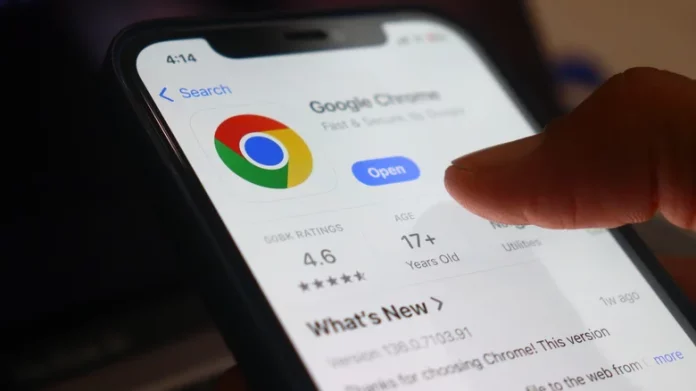Apple’s iPhones come with the company’s own Safari web browser, which most users rely on by default. Still, a sizable share of iPhone owners—roughly 30%—prefer Google Chrome or use it alongside Safari. Chrome brings several notable advantages, including integration with Gemini, Google’s new AI assistant, as well as built-in tools like Google Lens for image searches, instant webpage translations, and seamless sign-in with a Google account for accessing saved passwords, payment methods, and bookmarks.
However, Apple strongly advises against using third-party browsers like Chrome on iPhones. The company maintains that Safari offers the most secure and private browsing experience available on its devices—a position that also happens to align with its business interests. After all, it’s in Apple’s favor to champion its own ecosystem. Still, Chrome remains wildly popular among iPhone, iPad, and Mac users for its interface, customizability, and deep integration with Google’s apps and services. The company’s warning about Chrome isn’t without reason, though—it’s largely tied to Apple’s core focus on privacy and security.
Apple’s focus: privacy-first browsing
Apple markets Safari as a privacy-centric browser, emphasizing its built-in defenses against cross-site tracking and IP address exposure. In its own comparison charts, Apple highlights features that set Safari apart from Chrome: default blocking of third-party cookies, use of on-device machine learning to prevent tracking, automatic removal of identifying tokens from URLs in Private Mode, and protection from web extension data access.
Apple’s privacy push comes as Google continues to delay its long-promised removal of tracking cookies from Chrome. Last year, Apple launched a marketing campaign underscoring Safari’s security advantages—implying, though not explicitly stating, that Chrome falls short in protecting user data. Given that Google’s core revenue stems from targeted advertising, Apple’s privacy contrast is an easy message to sell.
With the rollout of iOS 26, Apple has further expanded its defenses. A new Safari feature called Advanced Tracking and Fingerprinting Protection is now enabled by default for “All Browsing.” It works by masking device information, making digital fingerprinting and tracking significantly more difficult.
Safari’s performance and ecosystem advantages
Privacy isn’t Safari’s only selling point. Apple also promotes Safari as delivering a faster and more seamless browsing experience. According to the company, frequently visited sites load up to 50% faster in Safari—a claim that held true in 2020 and still shows merit given ongoing optimizations for Apple’s hardware and software. Chrome, though much improved, can’t always match that level of integration on iOS and macOS.
Safari users also retain full access to Google’s suite of web apps—including Docs, Sheets, and Slides—so productivity isn’t sacrificed. For those immersed in the Apple ecosystem, Safari offers unmatched continuity: passwords, bookmarks, and tabs sync instantly across iPhone, iPad, and Mac, while Handoff lets you continue tasks across devices effortlessly. Added tools like Quick Note for capturing ideas and Visual Look Up for image recognition further extend Safari’s utility.
The bottom line
You don’t have to delete Chrome from your iPhone—but if privacy and security rank high on your list, Apple’s argument for sticking with Safari is compelling. Chrome’s AI features such as Gemini deliver clear advantages for productivity, but Safari’s superior privacy protections, native design, and tight ecosystem integration make it hard to ignore. Ultimately, it comes down to what matters most to you: cutting-edge AI or uncompromising privacy.





